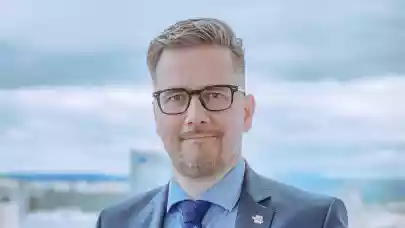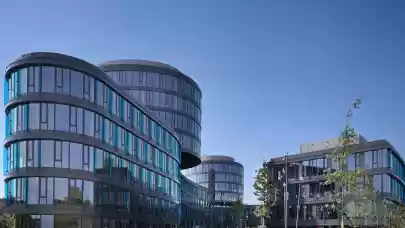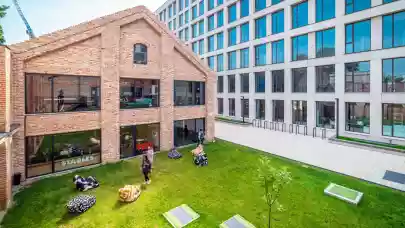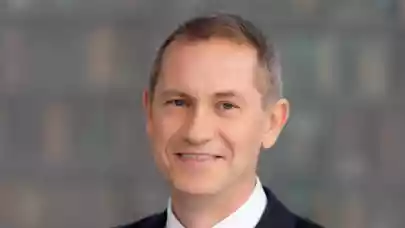
Home office is just an effective supplement that will not replace the need for office space. Time will show that people need to meet each other and robots will replace those professions movable to a full-time home office, says Eduard Forejt, Development Director at Czech company Passerinvest Group, who talked to Property Forum about the future of office work and the company's development plans.
We're almost one year into the pandemic. What has been the biggest challenge for you as an office investor and developer?
Most markets dealt with very similar issues connected with the lockdowns, lower people mobility, efficiency, and connectivity issues. As an investor and developer, we had to solve complications newly raised in several different fields. The first dealt with the new health and security issues to protect our employees, business partners, and tenants. Afterwards, we had to make the best of the situation and keep our business running in the most "normal" way possible. All that requires an abnormal effort from the company's management and all colleagues who faced difficulties with meetings not being able to take place in person, dealing with rescheduling plans regarding personal quarantine of colleagues and suppliers, etc. Because our company has many projects in the planning and authority approval process phase, we see the biggest issue interacting with the public authorities, which were not prepared for the online regime. Despite many officials' efforts, processes got delays and have become more complicated than ever before. Long story short, there is no challenge significantly bigger than the other ones, but all communication issues that have been discovered lately represent a big challenge. Fortunately, we passed through last year relatively without any major problem, mainly thanks to the great people we have at the Passerinvest Group.

Eduard Forejt
Development Director
PASSERINVEST Group
Have you noticed any major changes in tenants' attitude and requirements towards office space?
It is obvious that the demand got hit and slowed down. We all can remember the market reaction to the last 2008 crisis. Although the fundamental of the crisis is different, demand changes are very similar. The majority of tenants rethink or postpone their occupancy strategies. On the other hand, our leasing team led by Lenka Preslova delivered great results by leasing the majority of newly reconstructed Building B and/or renegotiating the major tenant within the tallest BB Centrum building – Filadelfie. It seems that the office market is still waiting for a reaction. The situation is different in retail. The low presence of office occupants brings a drop in demand for on-street and passage retail that is in survival mode and despite the state supports and our cooperation, some tenants will have to leave the market due to financial issues.
Do you expect the home office to become the new norm? What can occupiers do to make employees want to come back to the office even though it has been proven that we can work from almost anywhere?
I have personally been observing home office trends and their potential for a long time, and due to that fact, I see relatively clear outputs to be seen in the markets in the short-term and long-term period. The home office regime has been tried to be massively applied already before the COVID-19 crisis. We can see the similarity to the crisis in 2008 again. Even though many studies were done on a great sample of employees in a long-term test and the results were evident, managers' reaction was very similar to the last crisis. Fortunately, the studies were already proved by life. Managers changed their attitude to the home office regime from the positive to more neutral, if not the negative one. It doesn't mean that the home office will be used the same way as prior to the COVID-19 crisis. On the other hand, it simply cannot replace the need for offices as a place to meet, collaborate, learn and last but not least, the need to maintain company culture. Being in a home office creates several specific issues from the space requests, family consumption increase, and loneliness up to losing connection to the brand. How important is the brand of the company while sitting home on the same chair as before? To my knowledge, the full-time home office application is possible only for a minority of types of work. Moreover, if you deeply examine which work is suited for a full-time home office, it is mainly the routine work that is the easiest to replace by Artificial Intelligence (AI) algorithms. In the long-term, creative work needs to be made in the effective collaboration of human beings to be done again in the offices, at least until the AI will not become smarter than human beings. Again, long story short, we will see some changes in offices' decentralization to make shorter travelling time for employees, more collaborative space to be used, etc. Still, I deeply believe that home office is just an effective supplement that will not replace the need for office space. All the above leads to the one simple result: time will show that people need to meet each other and robots will replace those professions movable to a full-time home office.
Sustainability and wellbeing were the buzzwords for office developers for several years until health and safety took over in 2020. What are your keywords for 2021? What will you focus on as a developer?
Being a city developer, not only an ad hoc developer means that you have to deal with the planning with a long-term view. It brings the same responsibility to your particular project as to the whole city growth. Due to the fact that this is our company attitude, not much has changed from our point of view. We want to keep our long-term vision to build the city with all the great aspects to make places pleasant, sustainable and effective. Everyone who visited our BB Centrum in the Michle district would already see what is behind these words. Nice greenery, parks, architecture, public space, fountains, art, schools, kindergartens, infrastructure, fitness and wellness options, roof gardens for relaxation, high-quality materials, green solutions – these are the essential words reflecting our view of the product we deliver and would like to keep to deliver. In summary, the keywords for 2021 are very similar to previous years. We want to remain the responsible investor and urban developer.
What projects are you working on at the moment? What are the development plans of Passerinvest Group for 2021?
Tough question, we are in the planning phase of many projects that will be products we will be proud of. The closest delivery is the full reconstruction of Želetavská street in BB Centrum, where a new pleasant stone surface will replace the standard asphalt solution. All pedestrian streets are also replaced by the stone surface (pražská mozaika), which keeps rainwater in the field. Non-profit investment to public seating, bus stops, greenery, relax podium, etc. again shows how we are thinking about the nice and pleasant city. A residential project Oliva in Prague 4 is under construction at this moment. Oliva, offering 72 apartments with balconies or terraces, is an olive tree fruit-shaped building of 8 floors presenting a unique architecture and high-quality workmanship. I would also like to mention projects that are in the planning phase, the Roztyly Plaza office project located near the metro station Roztyly or Arboretum, a residential project on the site of the former Interlov brownfield, where we plan to build 600 apartments, circa 1/3 of which will be offered for rent. At BB Centrum, we work on the Orion and Hila projects, which are planned as the nearest phases of continuing the urbanization of the former brownfield Stavebni Onbova - Brumlovka.



